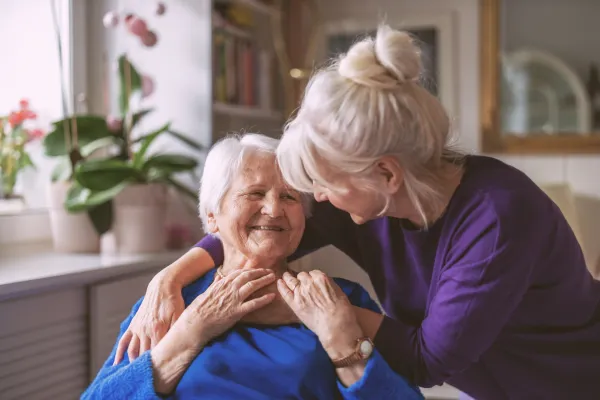
What I Wish Caregivers Knew — And What’s Finally Changing in Alzheimer’s Care
We’re finally talking about the caregiver.
For years, Alzheimer’s care has centered on the diagnosis.
On the brain.
On the progression.
But what’s been missing — what I wish every family knew from the beginning — is this:
The person with dementia doesn’t walk the journey alone.
And yet, the caregiver has rarely been treated as part of the care plan.
Until now.
What I Wish Every Caregiver Knew (That the System Still Doesn't Say)
If you’re caring for someone with dementia, you’ve probably had a moment where you thought:
“Why didn’t anyone tell me this would happen?”
“Is it supposed to feel this hard?”
“Am I failing — or is something missing?”
You’re not failing.
You were just never given the right tools, expectations, or validation.
Here’s what I wish every caregiver knew sooner:
1️⃣ You are not a helper. You are a key part of the care team.
But no one gave you training, space, or even a title that reflects that.
2️⃣ There is no single right way to do this.
You will need to adapt. Trial and error is normal. What matters is staying connected and observant.
3️⃣ Asking for help isn’t weakness. It’s a skill.
And if the system doesn’t support you? We build new tools that do.
So What's Actually Changing?
There’s a new push in Alzheimer’s care that’s finally naming what caregivers have been asking for all along:
🟣 CMS (Centers for Medicare & Medicaid Services) recently launched its GUIDE Model — a national pilot to improve care for people with dementia and their caregivers.
Here’s what’s different:
🧭 It includes structured support for caregivers, not just patients.
📋 It promotes care navigation — not just isolated visits.
💬 It values ongoing communication, behavior planning, and social support.
It’s not perfect.
But it’s a start.
And it means we’re finally seeing policy catch up to what we’ve known all along:
You can’t treat dementia without supporting the caregiver.
Why This Matters To You
Most families won’t hear about changes like this from their doctor.
But you should.
Because this kind of shift is what I’ve been building toward with every caregiver I work with.
It’s not just about education.
It’s about advocacy.
And it starts by validating you.
If no one told you this before — I will:
You’re doing the work of three people in a system that still expects you to manage with scraps.
That’s not on you. That’s on the model.
And slowly, we’re changing the model.
Let’s keep this going.
Ready to Close the Gaps?
Too many caregivers feel like they're failing—when really, the system failed to prepare them.
That’s why I created The Caregiver Gap Report—a free guide that breaks down what no one told you, and how to get the support you actually need.
👉 Download The Caregiver Gap Report right now

And remember: You’re not behind. You’re just navigating a system that wasn’t built with you in mind.
Until there’s a cure, I’m here sharing for you and helping you advocate with clarity, heart, and strength - while you're caring for them.
🫂 Join the Conversation:
Need a community where you can ask for help and get real support?
Join my FREE Caregiver Support Group here
👉 Dementia Caregivers Success & Support Network.
📚 Resources to Support You:
Grab your Medical Assistance Planner and get organized.
Explore the Dementia Caregivers Academy Course for in-depth strategies and support.
Check out our other free Resources here.
PS. This topic is also posted to our YouTube Channel, watch it here:

dementia caregiver support, caregiver education, Alzheimer's caregiver tips, dementia care planning, caregiver system gaps, GUIDE Model dementia, caregiver advocacy, dementia family support, caregiver burnout, dementia care resources
